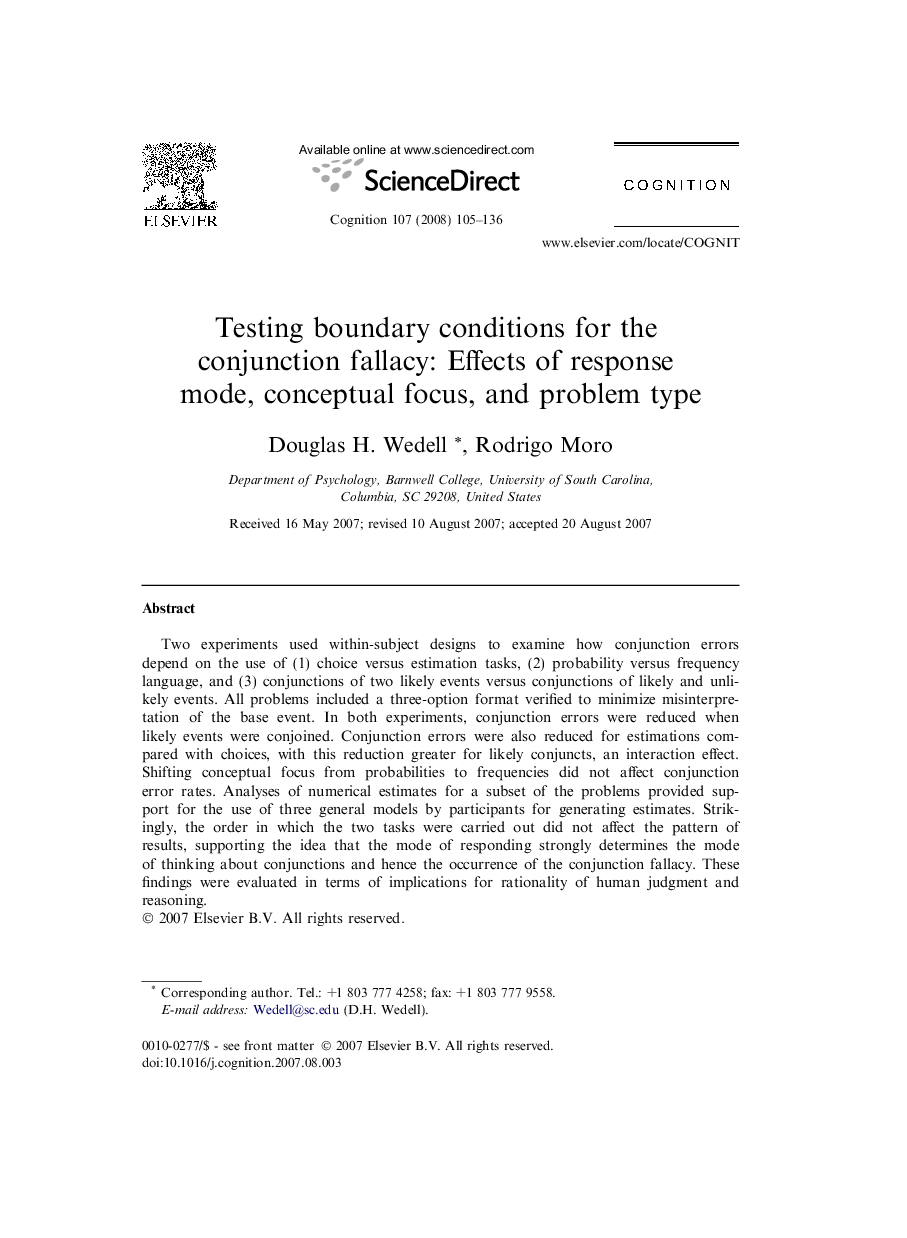| کد مقاله | کد نشریه | سال انتشار | مقاله انگلیسی | نسخه تمام متن |
|---|---|---|---|---|
| 927338 | 921970 | 2008 | 32 صفحه PDF | دانلود رایگان |

Two experiments used within-subject designs to examine how conjunction errors depend on the use of (1) choice versus estimation tasks, (2) probability versus frequency language, and (3) conjunctions of two likely events versus conjunctions of likely and unlikely events. All problems included a three-option format verified to minimize misinterpretation of the base event. In both experiments, conjunction errors were reduced when likely events were conjoined. Conjunction errors were also reduced for estimations compared with choices, with this reduction greater for likely conjuncts, an interaction effect. Shifting conceptual focus from probabilities to frequencies did not affect conjunction error rates. Analyses of numerical estimates for a subset of the problems provided support for the use of three general models by participants for generating estimates. Strikingly, the order in which the two tasks were carried out did not affect the pattern of results, supporting the idea that the mode of responding strongly determines the mode of thinking about conjunctions and hence the occurrence of the conjunction fallacy. These findings were evaluated in terms of implications for rationality of human judgment and reasoning.
Journal: Cognition - Volume 107, Issue 1, April 2008, Pages 105–136